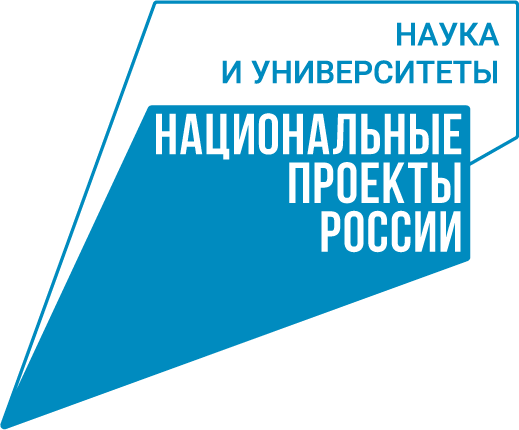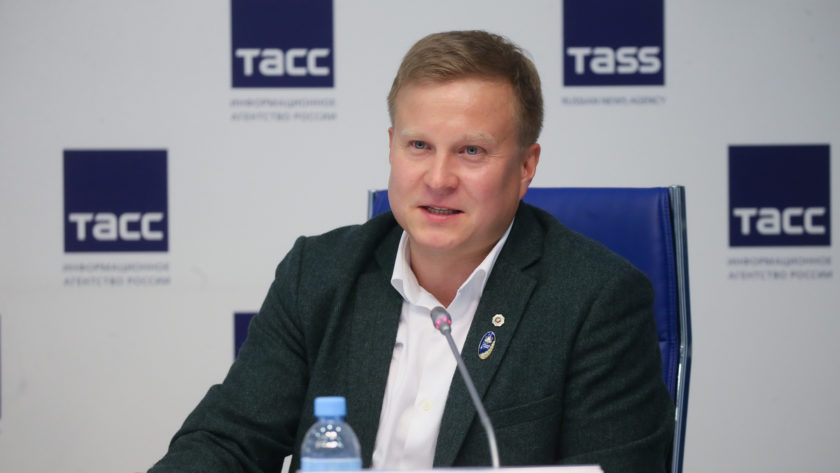According to Fyodor Tarasov, the developments are already being applied at industrial enterprises in the Sverdlovsk region. Photo: TASS Ural Press Center / Vladislav Burnashev.
Participants of the Ural Interregional Research and Educational Center (UIREC) shared information about unique technologies for the aviation industry, hot rolling for hard-to-deform alloys, a new network traffic processing accelerator, the creation of drones, and much more. Specialists took part in a press conference at TASS.
“The Ural Research and Educational Center is implementing 57 technological projects. Nine universities, ten scientific organizations, and 57 industrial partners are involved in their development. We have very serious projects with Rosatom, involving scientists from UrFU and the Institute of High-Temperature Electrochemistry of the Ural Division of the Russian Academy of Sciences. Within these projects, we are creating closed nuclear fuel cycle technologies and liquid salt reactor technologies,” explains Igor Manzhurov, Director for Development of the Ural Interregional Research and Educational Center.
UIREC specialists actively collaborate with industrial enterprises. For example, the Center’s scientists are working with the Ural Optical and Mechanical Plant to create a tachymeter—a device used for measuring distances and controlling the accuracy of topographic surveys. In collaboration with the Mashprom Research and Production Enterprise, specialists are developing technology for repairing and restoring crystallizer plates of continuous casting machines using friction stir welding.
“Technological projects make 80% of our Center’s work. However, we also have educational programs. Since last year, we have implemented our own network Master’s program at UrFU to train specialists in managing research and technological projects. Over the past two years, many enterprises have realized the need to implement their own technological projects. And for this, human resources are needed—unique specialists whom we train,” explains Igor Manzhurov.
Another project being implemented by the Ural Scientific and Educational Center in collaboration with the Kamensk-Uralsky Metallurgical Plant is aimed at creating a drum heating technology for processing hard-to-deform alloys. Scientists have managed to reduce production costs by 8% and significantly decrease the amount of defective products.
“This development improves the technology of hot rolling alloys, including hard-to-deform ones. A regular alloy, such as aluminum, is wound onto the drum of a hot rolling mill. However, a hard-to-deform alloy may not wind onto the drum because of the low temperature of the drum. In this case, we solved this problem by creating a technology for heating the drums before rolling. A special inductor is used for this, which heats the drum in 10 to 30 minutes, allowing easy processing of hard-to-deform alloys. The products of this rolling are used for the needs of the aviation industry,” explains Fyodor Tarasov.
An equally important project that scientists are working on today is the development of a network traffic accelerator. The traffic filtering module is being developed by KIT, part of the UDV Group. The project is being implemented in collaboration with IRIT-RTF UrFU with the support of USSC. According to experts, the device will help optimize the structure of firewalls for packet data transmission networks.
“When we move our hands, grab something, catch falling objects, we don’t think about it because such actions are reflexive. Similarly, the network traffic processing accelerator will help the processor not to be distracted by commands that are repeated many times per second and focus on management functions. These accelerators will take over all the routine tasks. They will also help create reliable filters against cyber threats for enterprise computer networks. It is worth mentioning that all the components we use in our development have domestic analogs. This means that all the products we develop can be replicated within the Russian Federation,” explains Kirill Ignatkov, Deputy Director of IRIT-RTF UrFU.

